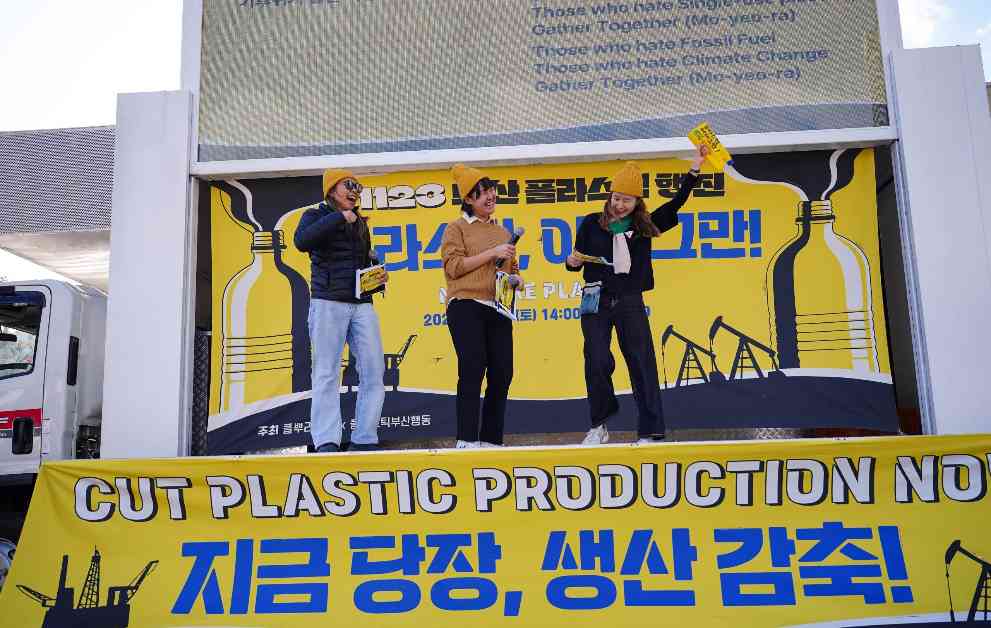Delegates from over 175 countries have gathered in Busan, South Korea, this week to address a critical environmental issue: plastic pollution. This marks the final round of negotiations for a Global Plastics Treaty, a commitment made by world leaders two years ago to combat plastic pollution across its entire lifecycle.
State of Play on Plastic Production
On the eve of the negotiations, 1,500 activists marched in Busan, demanding a strong treaty that includes measures to reduce plastic production. The central point of contention among delegates is whether the treaty should regulate plastic production at all. Some fossil fuel-rich countries are pushing to keep the ambition low, while others advocate for strong measures, including regulating polymer production and chemicals of concern.
Moment of Truth for Plastic Pollution
The plastic industry, valued at $712 billion, is projected to double or triple by 2050, contributing significantly to global carbon emissions. Campaigners are calling for mandatory targets to cap and reduce virgin plastic production, eliminate single-use plastics, and ban toxic chemicals in all plastics.
Non-toxic Reuse and Refill
In addition to reducing plastic production, environmentalists emphasize the need for legally binding targets to scale up non-toxic reuse and refill solutions. This includes policies to incentivize a shift away from single-use plastics and reject harmful practices like waste-to-energy.
Jo Banner, co-founder of The Descendants Project, highlights the impact of plastic production on frontline communities like Wallace, Louisiana. These communities, often overlooked, face severe health risks due to exposure to toxic chemicals from plastic production and disposal. Banner emphasizes the importance of recognizing and supporting these communities in any global treaty addressing plastic pollution.
As negotiations continue in Busan, the outcome will depend on the willingness of high-ambition countries to uphold their commitment to combat the global plastic crisis. The urgency of the situation demands a comprehensive and actionable treaty that addresses all aspects of plastic pollution.
By addressing the root causes of plastic pollution and prioritizing environmental justice, a global treaty on plastic pollution can pave the way for a sustainable future. The time for action is now, and the decisions made in Busan will have far-reaching implications for generations to come.














